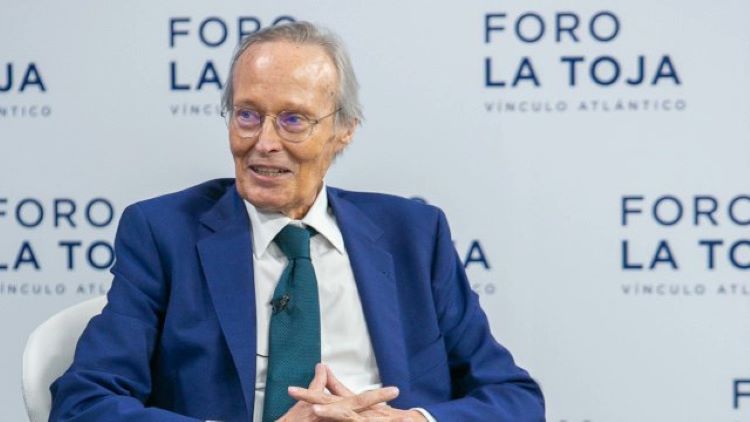Eduardo González
The Minister of Foreign Affairs, José Manuel Albares, paid tribute yesterday to his predecessor Josep Piqué, who died last April 6 in Madrid, whom he defined as “an extraordinary public servant” who was “animated by his sense of State” and who always defended the idea of “an active Spain present in all the great international debates”.
Josep Piqué is “someone whom I appreciated very much humanly from the first time I met him”, said Albares during a tribute to the former Minister of Foreign Affairs (2000-2002), Industry and Science and former spokesman of the Government, organized in Madrid by the Forum La Toja-Vínculo Atlántico (of which Piqué was president and promoter) and in which also participated the president of the Spanish Confederation of Business Organizations (CEOE), Antonio Garamendi, and several former foreign ministers, such as Abel Matutes (PP), Trinidad Jiménez (PSOE), Alfonso Dastis (PP) and Arancha González Laya (PSOE).
“Josep Piqué was an extraordinary public servant and had the general interest and the sense of State, which in the end is the interest for the Spanish people, always at the center of all his action,” continued Albares. “He was animated by that vocation of service to his country and that sense of State, and he always maintained it,” he added. “When I met him, it was many years ago that he had ceased to be a minister, and yet our conversations always revolved around Spain, the place that Spain had to have in the world, and how we could move Spain forward better to defend the interests of the Spanish people,” Albares recalled.
“Along with Josep Borrell, Josep Piqué is probably the former Minister of Foreign Affairs with whom I have maintained the closest relationship, which began with a first meeting, when, a few days after being appointed Minister of Foreign Affairs, I invited all my living predecessors of democracy to a lunch, and to exchange views on how they saw the current situation,” he continued.
From that meeting, he said, “a relationship of trust was immediately created which developed into a true friendship, based on respect for our obvious political differences, but also on personal harmony and convergence on some absolutely essential aspects for the orientation of our foreign policy, and, above all, on the idea that Spain is a country that must act in the world and that must have a say in order to move Europe forward and resolve the great crises we face”. “In short,” he said, Piqué defended “an active Spain, present in all the major international debates, contributing its point of view, contributing with proposals to respond to the challenges of our time”.
“Coming over here, I was remembering an exchange we had a few weeks before the war broke out in Ukraine, the terrible, brutal, unjust Russian aggression against Ukraine, when you could already see it coming,” he continued. “He was saying to me, ‘Forgive me for butting in where you didn’t call me, but I think it would be good for you to travel to Kyiv soon to demonstrate our support for Kyiv, for European values.’ And I told him in that exchange: ‘It is not public yet for security reasons, but the day after tomorrow I will be in Kyiv’, and I saw the harmony we had on the vision of where Spain had to be at that particular moment,” he added.
According to Albares, Piqué also defended the need to “maintain and strengthen the ties that unite us with our Latin American brothers, which are so important for Spain but which are also so important for Spanish companies”, and he was a pioneer in recognizing “what is evident today: the centrality of Asia for the future of the world”. Piqué “glimpsed it” and was “the first to say that Spain had to look to Asia as a center of world balance”, he recalled.
The minister also highlighted Piqué’s intellectual work “on the scientific council of think tanks such as the Royal Elcano Institute” and his role as president of the Toledo International Center for Peace (CITpax), where he “promoted important mediation projects in a world that increasingly needs mediation, understanding and dialogue.”
“As a universal Catalan that he was, Josep worked guided by a deep Europeanism,” he continued, in relation to the beginning of the Spanish Presidency of the EU Council. “He was a Minister of Foreign Affairs who also lived through an EU Presidency and I am sure that he would be one of those who today would be helping Spain’s voice to be heard loudly in Europe and lead Europe, so that the Spanish Presidency, which is a country’s project, takes the best of us to the heart of the Europe of the citizens,” he said.
For his part, Antonio Garamendi praised Piqué’s “universal, complete and unwavering spirit” in defense of “freedom, harmony and moderation”, virtues that, he regretted, “we miss today”.







